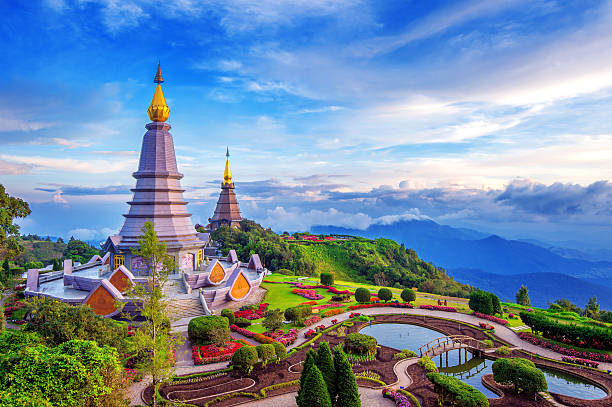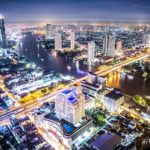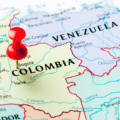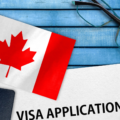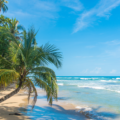Living in Chiang Mai as a digital nomad
Welcome to the ultimate Digital Nomad Guide to Chiang Mai, an enchanting city in Northern Thailand that has become a haven for remote workers seeking a perfect blend of affordability, cultural experiences, and natural beauty.
In this guide, we will delve into why Chiang Mai is such a popular location for digital nomads and explore everything you need to know about living and working in this charming destination.
Key Takeaways
- Chiang Mai is a popular destination for digital nomads due to its affordability, cultural experiences, and natural beauty.
- Accommodation options in Chiang Mai for digital nomads include popular neighborhoods, co – living spaces, and serviced apartments.
- Chiang Mai offers an abundance of coworking spaces and online work – friendly cafes with fast internet connectivity.
- The food scene in Chiang Mai ranges from local street food to vegetarian and vegan options at affordable prices.
Why Chiang Mai Is A Popular Destination For Digital Nomads – pros and cons of living here
Chiang Mai is a popular destination for digital nomads due to its affordability, cultural experiences, and natural beauty.
Affordability
One of the key reasons Chiang Mai has become a go-to destination for digital nomads is its affordability. Compared to other digital nomad hotspots in Thailand and around the world, Chiang Mai offers an attractive low cost of living without compromising on quality and convenience.
Additionally, remote workers can enjoy various leisure activities without breaking the bank. From affordable yoga classes to budget-friendly massages and exploring picturesque landscapes on rented scooters, there’s no shortage of inexpensive yet unforgettable experiences waiting to be discovered in Chiang Mai.
Cultural Experiences
Chiang Mai’s rich cultural tapestry offers digital nomads the chance to immerse themselves in local customs and traditions. The city is steeped in history, boasting over 300 ancient temples and beautiful Lanna architecture that can be found throughout the Old City.
Another unmissable activity for those looking to appreciate Chiang Mai’s vibrant arts scene is attending a performance of Thai classical dance or visiting one of the many art galleries scattered around the city.
Natural Beauty
Surrounded by breathtaking natural beauty, Chiang Mai offers digital nomads a serene and picturesque environment in which to live and work. Nestled in the heart of Northern Thailand, this charming city is encircled by lush mountains, providing ample opportunities for exploring the great outdoors on your days off work.
In addition to its stunning backdrop, Chiang Mai boasts numerous parks within the city limits that provide peaceful refuge from urban bustle. One such example is Huay Tung Tao Lake – just a short drive from the city – where you can unwind with activities like swimming or simply enjoying nature walks along its scenic trails.
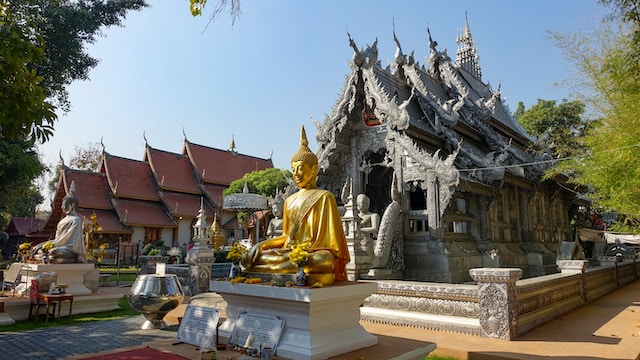
Silver Temple chiang mai
Accommodation For Digital Nomads In Chiang Mai – places to live
Digital nomads in Chiang Mai can choose from a variety of accommodation options such as popular neighbourhoods like Nimman and the Old City, co-living spaces with shared facilities, or serviced apartments for more privacy.
Popular Neighbourhoods
Chiang Mai boasts several popular neighborhoods for digital nomads, each with its own unique vibe and offering something different. Some of these neighborhoods include:
- Old City: This walled city is the historic heart of Chiang Mai and features a myriad of narrow lanes, temples, cafes, and markets.
- Hang Dong: Located just southwest of the city, Hang Dong offers a peaceful countryside living experience while still being within easy reach of Chiang Mai’s amenities.
- Nimmanhaemin: Known simply as “Nimman,” this trendy neighborhood is a hub for digital nomads due to its abundance of hip coffee shops, restaurants, art galleries, and coworking spaces.
- Chang-Dong: Situated in the east part of the city and within close proximity to Chiang Mai University, Chang-Dong boasts an array of affordable accommodation options and quiet streets lined with local eateries.
Regardless of which neighborhood you choose to stay in, Chiang Mai offers a great community for digital nomads where you can connect with like-minded individuals and find plenty of opportunities for work or play.
Serviced Apartments
For digital nomads who value privacy and comfort, serviced apartments are a popular accommodation option in Chiang Mai. These fully furnished apartments come with amenities like housekeeping services, 24-hour security, and access to facilities like swimming pools and gyms.
Serviced apartments offer the convenience of a hotel with the space of an apartment. One example is Staybridge Suites Chiang Mai which provides spacious studios as well as one- or two-bedroom suites that include a kitchenette, separate living area, and work desk making it easier for digital nomads to live comfortably while working remotely.
Internet Connectivity In Chiang Mai – internet in Chiang Mai
Chiang Mai has a variety of coworking spaces and digital nomad-friendly cafes with fast internet, making it easy for remote workers to stay connected.
Coworking Spaces, Best Places To Work
Chiang Mai is a digital nomad’s dream with an abundance of coworking spaces and online work-friendly cafes. Here are some of the best places to work in Chiang Mai:
- CAMP – Known for its fast internet, CAMP is a popular coworking space amongst digital nomads in Chiang Mai. You can choose between hot desks, dedicated seating or private offices.
- Punspace – With two locations in the city, Punspace offers a creative and professional workspace for freelancers and entrepreneurs alike.
- Mana – This vegan café serves up delicious plant-based food and coffee, along with free Wi-Fi and plenty of workspace options.
- SS1254372 Cafe – Located in the Nimmanhaemin area, this funky cafe is popular amongst digital nomads thanks to its great coffee, reliable WiFi and comfortable seating areas.
- Wake Up Coffee – Another popular spot in Nimmanhaemin, Wake Up Coffee has a relaxed atmosphere with plenty of seating and fast Wi-Fi.
- C.A.M.P (Creative And Meeting Place) – Located near Chiang Mai University’s Suan Sak campus, this unique coworking space boasts indoor and outdoor workspaces alongside meeting rooms, private offices and even accommodation options!
Whether you’re looking for a dedicated desk or just somewhere to caffeinate while you work, Chiang Mai’s coworking spaces have got you covered!
Co-living Spaces
For digital nomads seeking a sense of community and collaboration, co-living spaces are an attractive option in Chiang Mai. These spaces offer fully furnished apartments with shared amenities such as kitchens, lounges, and workspaces.
Some popular co-living spaces in Chiang Mai include The Brick Space, Punspace Coliving, and Hub53. These options offer affordable rates that often include utilities, cleaning services, and high-speed internet.
Digital Nomad-friendly Cafes
Chiang Mai offers an abundance of digital nomad-friendly cafes, providing a comfortable and convenient workspace. Here are some of the best spots to work from:
- Story 106 Cafe – Located in the Old City, this cafe features a beautiful garden and serves delicious Thai cuisine. The Wi-Fi speed is fast and reliable.
- The Xym Cafe – A popular spot for freelancers, with plenty of tables and outlets available. They offer a range of drinks and snacks to keep you fueled throughout the day.
- Artisan Cafe – This cozy cafe is tucked away in a quiet street near Tha Phae Gate. It has a relaxed atmosphere and delicious coffee.
- Heartwork Cafe – A trendy space that also serves as a coworking space during weekdays. Enjoy specialty coffee and baked goods while you work.
These cafes are not only great places to work remotely but also opportunities to immerse yourself in the local culture through their food and ambiance. Many cafes are attached to art galleries or shops, providing opportunities to explore beyond your workspace.
Food And Drink Scene In Chiang Mai
Chiang Mai’s food and drink scene offers a range of options from local street food to vegetarian and vegan cafes, as well as night markets and food festivals. Discover the best places to eat and drink while immersing yourself in Thai culture as a digital nomad in Chiang Mai.
Local Cuisine And Street Food
Chiang Mai is known for its vibrant street food scene, bustling night markets, and a wide variety of restaurants serving up local cuisine. Here are some must-try dishes and places to eat for digital nomads exploring the food and drink scene in Chiang Mai:
- Khao Soi: A popular Northern Thai dish made with crispy egg noodles, tender chicken or beef, and topped with coconut milk curry.
- Khanom Jeen: Fermented rice noodles served with various curries and sauces.
- Sai Oua: A spicy sausage made from minced pork and herbs like lemongrass, kaffir lime leaves, and galangal.
- Sticky Rice: Often paired with savoury Thai dishes like Som Tum (papaya salad) or grilled meats.
- Pad Thai: Fried rice noodles mixed with eggs, bean sprouts, tofu, peanuts, and your choice of meat or shrimp.
- Fried Quail Eggs: Bite-sized snacks that are often sold at street food markets.
The Flavours of Chiang Mai food tour is a great way to try out different local cuisines while getting insights into the city’s culinary culture. Additionally, there are several cafes and restaurants that offer delicious food options for digital nomads looking to explore local cuisine. The Riverside restaurant is one such place where you can enjoy authentic Northern Thai dishes alongside views of the Ping River.
As mentioned before in [IMPORTANT FACTS], cost of accommodation, food, transport, and drinks in Chiang Mai is quite affordable for digital nomads which makes it an ideal destination for exploring local cuisine and street food.
Vegetarian And Vegan Options
Chiang Mai is a perfect destination for digital nomads looking for vegetarian and vegan options. Here are some exciting facts:
- Chiang Mai offers an endless range of vegetarian and vegan food options.
- The city has numerous street food stalls and swanky cafes, offering many Thai vegetarian and vegan dishes such as Thai curries and pad Thai.
- The local Santi Asoke Buddhist Society manages a vegan food place in Chiang Mai where food is free with the expectation of a donation.
- The city is considered the best place for vegans in Thailand due to its diverse cuisine options.
For digital nomads visiting Chiang Mai, the Chiang Mai Digital Nomad Guide provides an ultimate guide to healthy eating, including all the best spots to find amazing vegan and vegetarian food in the city.
Night Markets And Food Festivals
Chiang Mai is renowned for its vibrant night markets and food festivals, providing digital nomads with a unique cultural experience. Here are some of the best ones to check out:
- Sunday Walking Street Market – This bustling market takes place every Sunday evening in the heart of Chiang Mai’s Old City, offering a wide variety of street food vendors, live music, and souvenirs.
- Night Bazaar – One of the most popular shopping spots in Chiang Mai, the Night Bazaar offers a range of products from clothing to handicrafts. Food vendors line the streets with various cuisines on offer.
- Chiang Mai Flower Festival – Held annually in February, this three-day festival celebrates the city’s stunning flora with parades, horticultural displays and traditional dances.
- Loy Krathong Festival – This ancient Thai festival takes place every November when people float krathongs (decorative baskets) down the river in celebration of good fortune and new beginnings. The festival also features firework displays and street food vendors.
- Saturday Walking Street Market – Similar to the Sunday market but held on Saturdays near Wualai Road in the southern part of Ancient Chiang Mai City, it is less crowded than its weekend counterpart but still has an incredible selection of goods for sale along with great food options.
The local night markets and food festivals are an essential part of the Chiang Mai experience for digital nomads, providing a chance to sample traditional Thai cuisine and immerse themselves in the local culture.
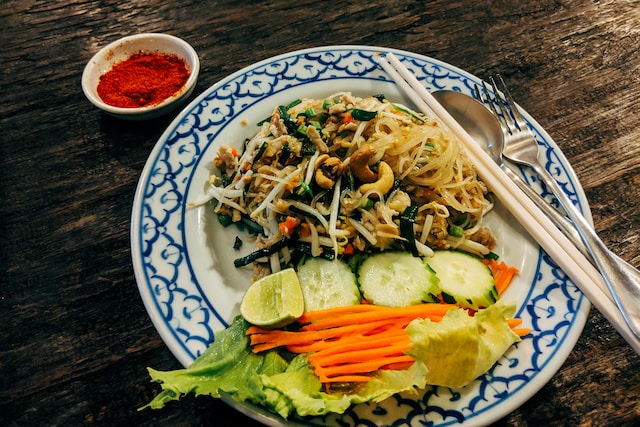
Traditional Pad Thai in Chiang Mai, Thailand
Getting Around Chiang Mai
Getting around in Chiang Mai is easy with various public transit options such as tuk-tuks and songthaews, or rent a scooter or bicycle to explore the city on your own. Another alternative is using ride-hailing services like Grab for convenience.
Public Transit Options
Chiang Mai offers a few public transit options for digital nomads who want to get around the city. Here are some of the most common ones:
- Songthaews: These are red pickup trucks that serve as shared taxis in Chiang Mai. They can be found all over the city and are a cheap way to get around.
- Buses: Chiang Mai has a public bus system that covers many areas of the city. The buses are air-conditioned and inexpensive.
- Tuk-tuks: These three-wheeled vehicles are popular for short trips around the city, but they can be more expensive than other options.
- Renting a scooter or bicycle: Many digital nomads choose to rent a scooter or bicycle to get around Chiang Mai. This option allows for more flexibility and is budget-friendly.
- Ride-hailing services: Uber and Grab operate in Chiang Mai, making it easy to hail a ride with just a few clicks on your phone.
It’s important to note that Chiang Mai doesn’t have any commuter rail system, so these options may be your best bet when traveling within the city.
Renting Scooters Or Bicycles – motorbikes in Chiang Mai
Renting a scooter or bicycle is a convenient and popular way for digital nomads to get around Chiang Mai. Scooters can be rented for as little as 200 baht per day, making them affordable and practical for longer-term stays.
Bicycles are also a great option, particularly for those wanting a bit of exercise while exploring the city. Many guesthouses offer free bicycle rentals, and there are dedicated bike rental shops throughout Chiang Mai.
However, it’s worth noting that cycling in the busy city centre can be challenging due to traffic congestion and limited bike lanes.
Ride-hailing Services
Ride-hailing services like Grab are widely used in Chiang Mai by digital nomads and locals alike. This app allows you to easily request a ride from the comfort of your own home or workspace, eliminating the need for haggling with taxi drivers.
Additionally, it is often more affordable than traditional taxis, making it a convenient and economical option for getting around the city. However, it is worth noting that some areas in Chiang Mai may not have strong GPS signals, so be sure to confirm your location with the driver before they arrive to avoid any confusion or delays.
Activities And Attractions In Chiang Mai
Explore the historical temples and cultural sites, enjoy outdoor activities in natural parks, browse through night markets for unique souvenirs, and attend vibrant festivals – these are just a few examples of what Chiang Mai has to offer.
Temples And Cultural Sites
Chiang Mai is home to a rich cultural heritage with numerous temples and historical sites that digital nomads can explore during their stay. The following are some of the must-visit temples and cultural sites in Chiang Mai:
- Wat Phra That Doi Suthep: This temple is located on top of a mountain, and visitors can enjoy breathtaking views of the city from the top. It is one of the most important and famous temples in Chiang Mai, attracting thousands of visitors each year.
- Chiang Mai Old City: The old city is surrounded by a moat and ancient walls, offering visitors a glimpse into Chiang Mai’s past. It houses several temples such as Wat Chedi Luang, Wat Phra Singh, and Wat Bupparam.
- Royal Flora Ratchaphruek Garden: This garden features a range of flora from around Thailand, with pavilions celebrating Thai culture throughout its 80-hectare area.
- Elephant Nature Park: The park offers visitors an opportunity to interact with rescued elephants and learn about elephant conservation efforts in Thailand.
- Baan Kang Wat Artist Village: Visitors can enjoy exploring this artistic community featuring unique galleries, workshops, cafes, and boutiques.
These cultural sites offer an opportunity for digital nomads to experience the rich history and tradition of Thailand while living in Chiang Mai.
Outdoor Activities And Parks
Chiang Mai offers a wide range of outdoor activities to keep you busy and entertained during your stay as a digital nomad. Here are some of the best parks and activities to explore:
- Doi Suthep-Pui National Park: A beautiful national park with stunning views, waterfalls, and hiking trails.
- Huay Tung Tao Lake: A tranquil lake surrounded by mountains that is perfect for swimming, kayaking, and picnics.
- Chiang Mai Night Safari: A unique experience where you can see nocturnal animals up close on a guided tram ride through the park.
- Zoo Chiang Mai: Home to over 400 species of animals including pandas, tigers, and orangutans.
- Mae Sa Elephant Camp: An ethical elephant sanctuary where visitors can interact with elephants in their natural habitat.
- Bua Tong Waterfall (Sticky Waterfall): A unique waterfall made of limestone that allows visitors to climb up the rocks without slipping.
- Chiang Mai Grand Canyon: This former Quarry has been transformed into an outdoor playground where visitors can swim, jump off cliffs or zip line across the canyon while enjoying spectacular views.
Take advantage of the natural beauty surrounding you in Chiang Mai by exploring these outdoor activities and parks during your stay as a digital nomad – it will be worth your while!
Night Markets And Shopping
Chiang Mai is known for its bustling night markets that offer a range of shopping options for digital nomads. Here are some of the best ones to explore:
- Night Bazaar: The largest nightly market in Chiang Mai located on Chang Klan Road. It’s a great place to shop for souvenirs, clothing, and accessories.
- Sunday Walking Street Market: Held every Sunday evening in the old city, this market is famous for its handicrafts and local delights.
- Saturday Night Market: Located along Wualai Road in the old city, this market offers handmade items such as jewellery, silk scarfs and clothes.
- Warorot Market: An indoor wholesale market situated on Chang Moi Road where one can find fresh fruits, vegetables, meats and snacks at wholesale prices.
- Maya Lifestyle Shopping Centre: A modern mall that caters to the needs of both locals and tourists with its branded stores such as H&M, Zara etc.
- Kad Suan Kaew Shopping Mall: This mall offers an array of stores like Central Department Store and Robinsons Department Store where you can buy electronics and home goods at reasonable prices.
Exploring these markets will give digital nomads an opportunity to interact with locals while experiencing the vibrant culture of Chiang Mai.
Festivals And Events
Chiang Mai is a city known for its vibrant festivals and events, making it an exciting destination for digital nomads. Here are some of the famous festivals in Chiang Mai:
- Loy Krathong festival: This festival takes place on the full moon of the 12th month in the traditional Thai lunar calendar (usually in November). During this festival, locals release krathongs (decorative floats) into rivers and lakes to pay respect to the water goddess.
- Songkran festival: Also known as Thailand’s New Year’s Day, Songkran is celebrated annually from April 13th to 15th. During this time, people splash water on each other to symbolize washing away their sins and bad luck from the previous year.
- Yi Peng festival: Taking place alongside Loy Krathong, this festival sees thousands of floating lanterns released into the sky. It’s a truly mesmerizing sight and one that should not be missed while in Chiang Mai.
- Chiang Mai Flower Festival: This event takes place every February and showcases beautiful flower displays throughout the city. There are also parades, live music performances, and food stalls to enjoy.
- Sunday Walking Street Market: This lively night market takes place every Sunday in Chiang Mai’s old town. You can find everything from street food to handmade souvenirs.
With so many unique festivals and events happening year-round, digital nomads will never run out of things to do while living in Chiang Mai.
Networking And Socializing For Digital Nomads In Chiang Mai
Digital nomads in Chiang Mai have plenty of opportunities to network and socialize, with online communities, co-working space events, meetups, and volunteering opportunities available.
Online Communities And Forums
Chiang Mai has a strong community of digital nomads, and being a part of it can be incredibly beneficial. Joining these online communities and forums offer opportunities to expand your network, share experiences, learn new skills, and find helpful resources. Here are some of the most popular online communities and forums for digital nomads in Chiang Mai:
- Digital Nomad Community Forum – This forum is an excellent resource for networking with other digital nomads in Chiang Mai, learning about local events and meetups, or finding accommodation recommendations.
- Chiang Mai Digital Nomads Facebook Group – With over 15K members, this group provides a platform for discussion and networking among digital nomads living or working in Chiang Mai.
- Women Digital Nomads – For female digital nomads looking to connect with like-minded individuals, Women Digital Nomads offers valuable resources on topics such as health insurance options, visa requirements, travel tips and much more.
- Work from Chiang Mai – This forum is ideal for those who want to connect with other like-minded individuals who live in Chiang Mai long-term while working remotely.
- Co-living Spaces – Many co-living spaces have dedicated online groups where members can discuss everything from work-related topics to social activities and logistics.
- Meetup.com – Meetup is another great way to connect with other people having similar interests whether you’re interested in hiking groups or entrepreneur mixers.
By joining these communities and forums, digital nomads can easily make new friends, collaborate on business projects together while enjoying their stay in one of the best places for digital nomads world-over- Chiang Mai!
Meetups And Networking Events
Chiang Mai is a hub for digital nomads, and as such, there are ample opportunities to network with other like-minded individuals. Here are some popular meetup and networking events that you can attend:
- Nomad Coffee Club: This weekly event takes place every Thursday morning at different coffee shops around the city. It’s a great way to meet other digital nomads over a cup of coffee.
- Chiang Mai Digital Nomads Meetup: This group organizes regular social events, such as happy hours and dinners, as well as educational workshops.
- Coworking Space Events: Many coworking spaces in Chiang Mai offer events where members can connect with each other, attend talks and workshops or simply have fun together.
- Co-living Space Events: If you’re staying at a co-living space, there may be organized events for residents to meet and socialize.
- Volunteer Opportunities: There are also many volunteer organizations in Chiang Mai that cater specifically to digital nomads looking to give back while also meeting new people.
These are just a few examples of the many ways you can connect with others in the digital nomad community while in Chiang Mai. As mentioned before, online platforms like Facebook groups and forums are also great resources for finding out about networking events happening around town.
Co-working Space Events
There are plenty of co-working spaces in Chiang Mai that regularly host events for networking and socializing. Here are some of the events you can expect as a digital nomad in Chiang Mai:
- Workshops and seminars: Many co-working spaces host workshops and seminars on topics such as marketing, SEO, and entrepreneurship. These events provide valuable information for digital nomads looking to improve their skills and knowledge.
- Social meetups: Some co-working spaces in Chiang Mai, such as Punspace, organize weekly social meetups for digital nomads. These meetups offer a great opportunity to connect with other like-minded individuals and make new friends.
- Pitch nights: Co-working spaces often host pitch nights where entrepreneurs can pitch their ideas to investors and receive feedback. As a digital nomad in Chiang Mai, attending these events can be a great way to learn about the local startup scene.
- Networking events: Many co-working spaces also organize networking events where you can meet fellow entrepreneurs, investors, and professionals from various industries. These events can help you expand your network and potentially open up new business opportunities.
Overall, attending co-working space events is an excellent way for digital nomads in Chiang Mai to stay connected with the local community while expanding their knowledge and skills. Additionally, since Chiang Mai is one of the top locations for coworking spaces globally, you’ll have ample opportunities to attend exciting events tailored specifically for remote workers like yourself.
Co-living Events
Chiang Mai’s digital nomad community offers many exciting co-living events that involve networking and socializing opportunities. Here are some popular co-living events that you can attend as a digital nomad in Chiang Mai:
- Nomad Coffee Club: A monthly event that brings together remote workers from different industries over coffee to connect and share ideas.
- Workation Summit: An annual retreat for digital nomads that includes workshops, training sessions, and recreational activities.
- Co-Living & Coworking Meetup: A regular event organized by the Chiang Mai Digital Nomad Community that provides a platform for residents of co-living spaces to network with each other.
- Colivers Monthly Meetup: Another monthly event where co-livers come together to exchange experiences, ideas, and skills.
By attending these co-living events, you can enhance your social life while living remotely. You get to experience the camaraderie of like-minded people who are passionate about the digital nomadic lifestyle. These events also provide an opportunity to form lasting business relationships and even make new friends.
Volunteering Opportunities
If you’re a digital nomad looking to give back and make a positive impact while living in Chiang Mai, there are numerous volunteering opportunities available. Here are some options to consider:
- Volunteer at local NGOs or social enterprises that support various causes such as education, health care, animal welfare, and environmental conservation.
- Participate in community development projects and help improve the living conditions of underprivileged communities through activities like construction, farming, and teaching.
- Join events and initiatives organized by non – profits like beach cleanups, charity runs, and fundraising campaigns.
- Offer your skills or services as a digital nomad to local businesses or startups that need support in areas like marketing, web design, or programming.
- Mentor students or young professionals in their career growth by sharing your expertise and experiences.
As with any volunteer opportunity abroad, it’s important to do your due diligence in researching organizations before committing to a project. Look for reviews from other volunteers and ensure that the project aligns with your values and goals as a digital nomad. Additionally, keep an eye out for potential scams or unethical practices such as orphanage tourism or unregulated animal sanctuaries.
Chiang Mai has a strong community of socially-minded individuals who are passionate about making a difference both locally and globally. By getting involved in volunteering initiatives, not only will you be contributing positively to the society but also expanding your network of like-minded individuals who can offer valuable insights into the city’s culture and lifestyle.
Best time to visit Chiang Mai
The best time to visit Chiang Mai is during the cool season, which runs from November to February. This is when the weather is most pleasant, with average temperatures ranging from 25 to 32 degrees Celsius. There is also very little rainfall during this time, making it ideal for outdoor activities such as hiking, biking, and exploring the city’s many temples and palaces.
The shoulder seasons (March to May and September to October) can also be good times to visit, as the weather is still warm and sunny, but there are fewer tourists. However, it is important to note that the rainy season runs from June to August, and during this time it can be very hot and humid, with frequent downpours.
Health And Safety In Chiang Mai
Health precautions and vaccinations are important before arriving in Chiang Mai, particularly for mosquito-borne illnesses such as dengue fever, while personal safety tips include using common sense while traveling alone or at night.
Health Precautions And Vaccinations
Chiang Mai is a beautiful city that offers plenty of cultural experiences, great food, and a thriving digital nomad community. However, it is important to take certain health precautions to ensure a safe and healthy stay in the city. Here are some tips for digital nomads:
- Get vaccinated: Before traveling to Chiang Mai, consider getting vaccinations for Hepatitis A and B, typhoid, and rabies.
- Drink bottled water: It is recommended to drink bottled water or boiled water as tap water in Chiang Mai may not be safe for consumption.
- Avoid street food: While street food can be tempting and delicious, it carries a risk of contamination. If you do choose to eat street food, make sure it is freshly cooked and served hot.
- Use mosquito repellent: In order to prevent diseases like Dengue fever and Malaria which are transmitted by mosquitos, use mosquito repellent regularly especially during the rainy season (June-October).
- Have travel insurance: Make sure your travel insurance covers medical emergencies in case of any unexpected illness or injury while you’re in Chiang Mai.
Overall, taking these simple precautions will help ensure that you have a safe and enjoyable time while exploring all that Chiang Mai has to offer as a digital nomad destination.
Personal Safety Tips
Maintaining personal safety is vital when living and working as a digital nomad in Chiang Mai. Here are some tips to keep in mind:
- Be aware of your surroundings, especially at night.
- Always carry a form of identification with you.
- Avoid carrying large sums of cash or wearing expensive jewellery.
- Use trusted transportation services, such as Grab or Uber, rather than unlicensed taxis or tuk – tuks.
- Keep important documents and valuables in a safe place and make digital copies if possible.
- Be cautious when using public Wi – Fi and avoid accessing sensitive information on unsecured networks.
- Ensure that your accommodation has adequate security measures in place, such as locks on doors and windows.
- Research areas of the city to avoid for safety reasons, such as where there may be high crime rates or political unrest.
Remember that while Chiang Mai is generally considered a safe destination for digital nomads, it’s always best to take precautions for personal safety wherever you go.
Emergency Services
In case of an emergency, it’s important to know where to turn for help. Chiang Mai has several hospitals and clinics that cater to residents and tourists alike, including the Chiang Mai Ram Hospital and McCormick Hospital.
Both have state-of-the-art facilities and English-speaking staff. In addition, there are emergency ambulance services available in the city such as Siam Care Foundation Ambulance Service which offers ambulance services for a reasonable price.
It is also advisable to take out travel insurance before arriving in Thailand so that you can be covered in case of any medical emergencies or accidents during your stay.
Hospitals And Clinics
Chiang Mai has several hospitals and clinics that cater to the needs of digital nomads. Here are some important facts you should know:
- Public hospitals such as Maharaj Hospital, Nakhornping Hospital, Sarapee Hospital, Hang Dong Hospital and San Kamphaeng Hospital offer affordable options for medical care.
- Private hospitals like Chiang Mai Ram Hospital and Bangkok Hospital Chiang Mai provide high – quality medical services but can be more expensive.
- Dental services are also available in Chiang Mai with clinics such as Smile Dentist offering affordable treatments.
- International hospitals like McCormick Hospital, Lanna Hospital and Nakorn Ping Medical Center have English-speaking staff and cater to expat communities.
- Pharmacies are easily accessible in Chiang Mai where you can buy over-the-counter medication or get prescription drugs from a doctor.
As a digital nomad, it is important to have travel insurance that covers medical emergencies. The article “Top 7 Travel Insurance for Digital Nomads in 2023” provides a comprehensive guide to finding the perfect travel insurance plan for your needs. Remember to prioritize your health and well-being while living and working remotely in Chiang Mai..
Best Time To Visit – weather in Chiang Mai
If you’re a digital nomad planning to visit Chiang Mai, the best time to do so is between November and February. During these months, the weather is mild with cool breezes making it perfect for exploring the city’s outdoor attractions.
However, keep in mind that as one of the most popular destinations for digital nomads in Thailand, there may be an influx of tourists during peak season which could affect accommodation prices.
If you prefer fewer crowds and don’t mind braving slightly warmer temperatures, consider visiting during shoulder season (March to May) or low season (June to October).
Visa Requirements And Options
To stay in Thailand as a digital nomad, you will need to obtain a visa. Here are some visa requirements and options available for digital nomads:
- Tourist Visa: The majority of digital nomads use the 60-day tourist visa and extend it for another 30 days at immigration offices to stay for the full 90 days in Thailand.
- Long-term Visa: Thailand offers various long-term visa options such as the Non-Immigrant B visa, which allows you to stay up to one year, and the ED visa for students studying in Thai schools.
- Thai Elite Visa: The Thai Elite visa is a long-term multiple-entry permit that grants you up to five years of residency in Thailand without having to leave the country every 90 days.
- Smart Visa: The smart visa is designed for entrepreneurs, investors, high-level executives, and highly skilled professionals who want to work or invest in Thailand’s targeted industries.
- Visa Requirements: Digital nomads need to have 20,000 Baht in cash to enter the country and if they want to apply for a Thai visa, they also need 20,000 Baht in a bank account.
It’s essential to research each option thoroughly before choosing one that meets your needs as different visas have different requirements and benefits.
Thai Language Basics
As a digital nomad in Chiang Mai, it’s important to have basic knowledge of the Thai language. Here are some tips to help you get started:
- Learn Thai phrases using language apps such as Duolingo or ThaiPod101.
- Attend language schools such as AUA Language Center or Payap University Language Institute.
- Start with basic phrases such as greetings and ordering food.
- Respect local customs and cultural practices, such as removing shoes before entering someone’s home.
- Join language exchange groups, practice with Thai friends, and immerse yourself in the language through daily interactions.
By learning Thai, you’ll be able to communicate better with locals and fully experience the vibrant culture that Chiang Mai has to offer.
Cultural Etiquette
Respect for local customs and traditions is important when living as a digital nomad in Chiang Mai. Here are some cultural etiquette tips to keep in mind:
- Dress modestly when visiting temples or other religious sites.
- Remove your shoes before entering homes, temples, or any indoor space where shoes are not allowed.
- Avoid public displays of affection.
- Use the wai (a traditional Thai greeting) to show respect to locals and elders.
- Do not touch someone’s head, as it is considered sacred by Buddhists.
- Be mindful of your tone of voice and avoid confrontation or aggression in public settings.
- Do not point your feet at people or objects, as they are considered the lowest part of the body and can be seen as disrespectful.
- Show reverence for Buddha images and statues by treating them with care and avoiding any inappropriate behavior.
To fully immerse yourself in the local culture, attend festivals and events, try local foods, and learn about Buddhism. Language learning can also help bridge cultural gaps and make interactions with locals more meaningful. By respecting local customs and traditions, digital nomads can foster positive relationships with the community in Chiang Mai.
Must-see Places And Hidden Gems – things to do in Chiang Mai
Chiang Mai is a city filled with stunning temples, vibrant markets, and breathtaking natural landscapes. Here are some must-see places and hidden gems to explore during your stay as a digital nomad:
- Doi Inthanon National Park – A must-visit for nature lovers with its picturesque waterfalls, hiking trails, and stunning views from the highest peak in Thailand.
- Wat Umong – This temple is known for its unique tunnel system that leads through meditation chambers and offers a peaceful retreat from the bustling city.
- Chiang Mai Grand Canyon – A former quarry transformed into a scenic swimming spot surrounded by cliffs and turquoise water.
- Warorot Market – A bustling marketplace with everything from fresh produce to souvenirs, offering an authentic Thai shopping experience.
- Huay Tung Tao Lake – An idyllic freshwater lake perfect for picnics, swimming, or kayaking amidst tranquil natural surroundings.
- Sunday Walking Street Market – A lively market featuring local handicrafts, art, and food stalls that takes place every Sunday evening in the heart of the old city.
- Baan Kang Wat Artist Village – A charming village featuring talented local artists showcasing their works in various mediums such as ceramics, textiles and paintings.
- Mae Sa Valley – An adventure-packed destination with activities such as zip-lining, ATV rides, mountain biking and jungle trekking set amidst lush greenery.
By exploring these hidden gems among other popular destinations in Chiang Mai outlined in this guide, you’ll be able to have an unforgettable experience as a digital nomad while living in one of the most popular cities for remote workers in the world.
Sustainable Travel Practices
Travelling sustainably is crucial, and here are some tips for digital nomads visiting Chiang Mai:
- Reduce plastic waste by bringing a refillable water bottle and refusing single – use plastic.
- Choose eco – friendly accommodation options that use renewable energy sources, recycle waste, and practice water conservation.
- Use local transportation like bicycles or public transit to reduce carbon emissions.
- Visit sustainable tourism sites such as organic farms or nature reserves.
- Support local businesses and artisans to promote the local economy.
- Respect cultural norms and traditions while travelling in Chiang Mai to preserve the region’s heritage.
- Participate in community activities such as beach cleanups or environmental campaigns to give back to the community you are visiting.
- Be mindful of your carbon footprint when flying to Chiang Mai by offsetting your flight emissions through verified carbon offset programs.
By adopting these sustainable travel practices, digital nomads visiting Chiang Mai can minimise their impact on the environment while also promoting responsible tourism practices.
Taking Breaks And Self-care
As a digital nomad in Chiang Mai, it’s essential to prioritize taking breaks and practicing self-care. With so many exciting things to see and do, it can be easy to get wrapped up in work and forget to take care of yourself.
And don’t forget about staying healthy! Chiang Mai has plenty of options for nutritious food, including delicious vegetarian and vegan meals. Many restaurants provide fresh local ingredients that will keep you fueled throughout your busy days.
Weather And Climate
Chiang Mai’s weather and climate are undoubtedly one of the reasons it has become a top destination for digital nomads. The city experiences three distinct seasons- cool, hot, and rainy.
From November to February is the “cool season,” where temperatures average around 20°C.
From March to May is the “hot season,” with temperatures soaring into the high 30s Celsius. It can be uncomfortable outdoors during midday hours due to extreme heat; however, things tend to cool down in late afternoon as locals come out for their evening stroll before heading home for dinner.
As a digital nomad in Chiang Mai, you’ll want to avoid traveling during heavy storms if possible and invest in waterproof shoes or boots.
FAQs:
1. Why is Chiang Mai a popular destination for digital nomads?
Chiang Mai offers a low cost of living, reliable infrastructure and fast internet speed, making it an attractive location for remote workers. The city also boasts a vibrant expat community and numerous co-working spaces.
2. What are some of the best co-working spaces in Chiang Mai?
Some top-rated co-working spaces in Chiang Mai include Punspace, Mana Co-Working Space, CAMP and Hub53.
3. Are there any visa requirements for digital nomads staying in Chiang Mai?
Digital nomads can enter Thailand on a tourist visa but will need to leave the country every 60 days to renew their stay. Alternatively, they can obtain a Non-Immigrant O visa or apply for the Smart Visa program which allows stays of up to four years.
4. What are some must-see attractions or activities in Chiang Mai?
Visitors to Chiang Mai should check out historic temples such as Wat Phra Singh and Wat Doi Suthep, explore local markets like the Night Bazaar or Sunday Walking Street Market and take cooking classes to learn how to prepare traditional Thai dishes. Outdoor enthusiasts can go hiking at nearby national parks or visit elephant sanctuaries in the region as well.
